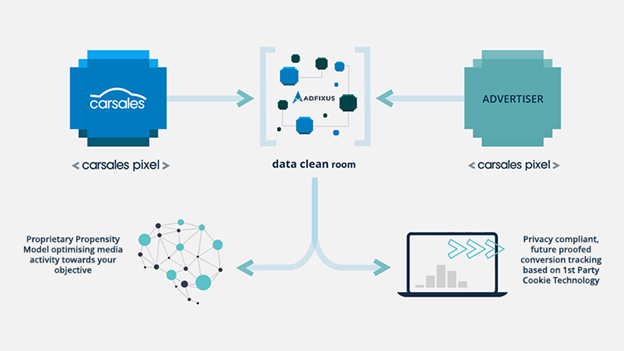Digital attribution is a mess: Here’s how an auto brand improved conversion rates by 41% using first party identity – with an eye on ‘future-proofing’ for incoming privacy changes

Digital attribution is currently a challenge for many marketers as they struggle to understand how their media is performing and the reliability of the data on which they depend. With Google culling attribution tools and tracking issues across various browsers and devices that do not support third-party cookies, the challenge is likely to increase.
But an early ‘proof of concept’ trial between carsales mediahouse and several category-based advertisers has shown great promise by effectively linking user behaviour between the two parties via a first-party identifier. This trial has provided the first-ever view of how advertising is influencing user behaviour across both environments.
This is important to consider for a publisher like carsales mediahouse that has a significant audience across Safari and iOS devices. By getting this right, mediahouse has improved conversion rates by 41% for one advertiser (advertisers’ post click and post view data).
“We’ve designed this approach to balance the performance requirements of our clients with the incoming changes to privacy laws and customer consent rules.” says carsales’ Executive General Manager - Media, Davor Vilusic, adding “This will become the new normal.”
Vilusic contends the continual discontinuation of third-party cookies has made it challenging for marketers to build direct relationships with customers and meet growing customer and regulatory demands around experiences, interactions, privacy, and consent.
“This is because data that informs decisions tends to favour advertising performance across browsers that have a "friendly relationship" with the third-party cookie", Vilusic explained.
To overcome this challenge, carsales mediahouse created systems to "unify" audiences’ behaviour across the carsales environment and the advertiser's brand site – and did so without dependency on a third-party cookie.
This “unification” ensures a first-party identifier in carsalesID intersects with a First-Party identifier from the advertiser and remains consistent across both environments via the use of a cleanroom. This enables seamless, privacy-compliant treatment of combined data; data that is used only for the specific purpose of the campaign.
For the First-Party identifiers and cleanroom, carsales mediahouse chose AdFixus to solve the technology challenge. While there are ways of achieving similar outcomes with existing technology, a solution was needed that was flexible enough to futureproof mediahouse’s audience match service in the face of potential changes to consent regimes.
The approach also delivers a holistic view of the audience's behaviour -- from all browsers and devices -- as well as powering a proprietary AI model that optimises campaign delivery in real-time.
The initial evidence of the success of the innovative mediahouse solution is promising. Indeed, the proof-of-concepts showed a more balanced ad delivery profile across multiple browsers. This is in contrast to the predominantly Chrome-focused approach which other systems use that relies on third-party cookies. Most importantly, the carsales mediahouse solution delivered solid uplift in click through and conversion metrics (advertisers’ post click and post view data).
There is an abundance of data, tools, and measurement platforms available to brands and media buyers today. However, collaborating with brands and leaders in your category and working with them directly can provide you with the answers you might have been missing.
Ultimately, these collaborations are the key to unlocking a 360-degree view of customer engagement and providing the right ammunition to deliver on your business objectives.
